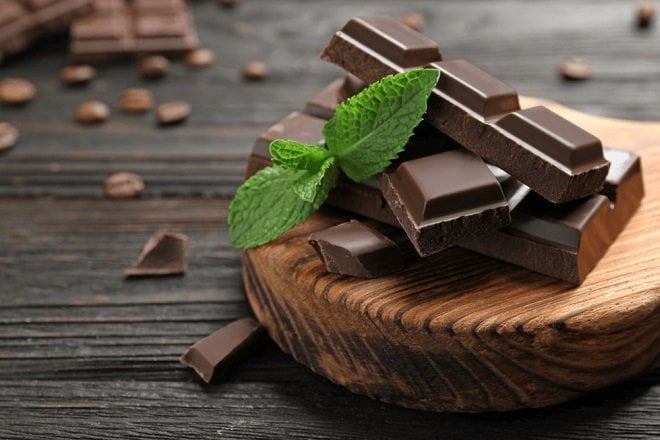Many of us usually consider chocolate as a type of junk food but in reality, chocolate actually contains several significant beneficial effects on your health.
Chocolate, savory to enjoy but not recommended when consumed too much. Many of us view chocolate as a type of fast food and increase weight but with the right amount, chocolate can give us multiple health benefits. Today, together with Illume-eMag, let’s find out what health benefits chocolate can give us.

Increase energy
If you have a strenuous workout routine, chocolate will provide you with many benefits. Eating chocolate before exercise will give you energy. Cocoa contains antioxidants like epicatechins and catechins that improve the body’s ability to absorb nutrients. Some studies show that antioxidants can increase fatigue resistance by 30%. Additionally, chocolate is more effective at reducing post-workout pain, mainly due to its anti-inflammatory compounds, than some muscle recovery drinks.
Lower cholesterol
Many studies show that eating chocolate helps lower bad cholesterol (LDL) and increase good cholesterol (HDL). It also reduces the risk of heart disease. Cocoa administered to patients with mild hypercholesterolemia may reduce LDL cholesterol levels by less than 5% after 4 weeks (when cocoa is taken daily from 81-163mg/day). Even in young people with normal cholesterol levels, 105g/day of milk chocolate (containing 168mg flavanols) reduced LDL-cholesterol levels by 15% after 14 days. An increase in HDL cholesterol has been demonstrated experimentally and in individuals with mild elevation of cholesterol if dark chocolate or powdered cocoa is consumed.
Reduce the risk of cardiovascular disease
The evidence is clear that the antioxidants in chocolate flavanols are very beneficial for health. Chocolate, especially dark chocolate, is very high in flavonoids. Research in the BMJ (British Medical Journal) concluded that chocolate consumption can reduce the risk of developing heart disease by 35%. You are at risk for heart disease if your platelets clot, forming blood clots and blocking blood vessels. If you consume chocolate regularly you will improve your arterial blood flow, not clogged. That’s thanks to the flavanols in cocoa beans that promote blood flow and make your blood vessels relax and circulate.
Reduce anxiety and stress
Stress produces cortisol, which leads to fat storage in the abdomen and other organs. Eating about 28g a day for two weeks helps to lower cortisol levels and make you relaxed and anti-anxiety. Surveys show that people who eat cocoa regularly have 10% lower anxiety levels than normal. In addition, chocolate contains the substance phenylethylamine (PEA), which is secreted when you are happy. PEA encourages the brain to release endorphins that bring about a feeling of happiness and well-being.
Good for pregnant women and babies
As mentioned above, chocolate is a great stress reliever. A study in Finland showed that pregnant women who eat chocolate regularly will have a good mood, feel less pressure, so the baby will be born happier and smile more than other babies.
Hypotension
Grassi’s study in Italy in a group of healthy young people fed the same diet differed only from one group consuming 100g of dark chocolate and the other using 90g of white chocolate (100g of white chocolate). -Dark chocolate has 500mg of polyphenols and white chocolate has no polyphenols). Research shows that dark chocolate lowers blood pressure while not seeing this in white chocolate users. Eating dark chocolate can reduce systolic blood pressure by 4.7 mm Hg and diastolic blood pressure by 2.8 mm Hg.
Make your skin healthy
Chocolate is a great food for healthy skin because it contains antioxidants. Eating chocolate for 12 weeks will help your skin increase moisture by 25%, while increasing UV protection. Chocolate also protects your skin from dehydration, increases elasticity and prevents burns by improving the circulation of blood to the brain to the capillaries in the upper layer of the skin.

